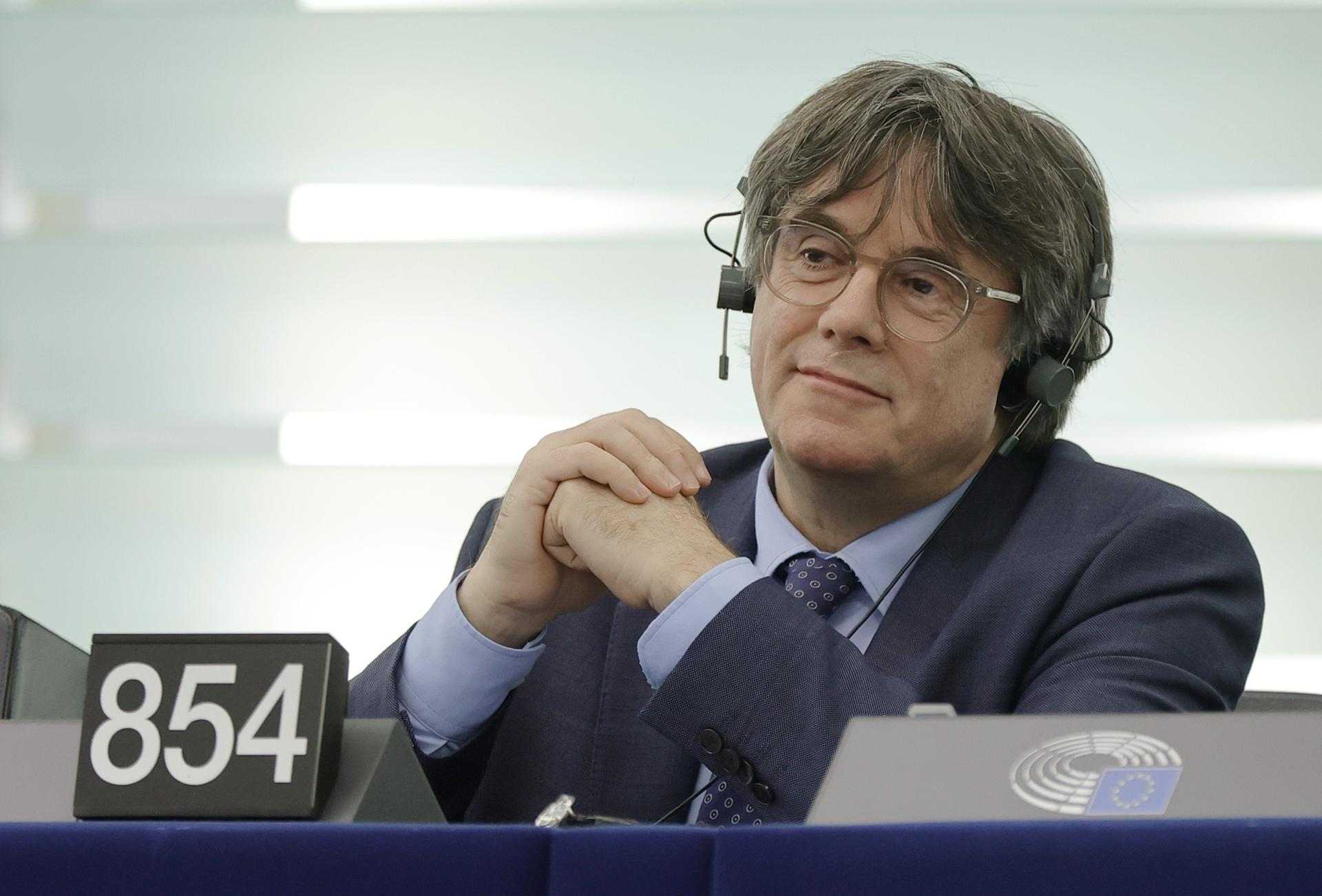The European parliamentary elections, which will be held on June 9th in the Spanish state, have partially upset the plans of the Supreme Court in its pursuit of the exiled Catalan president, Carles Puigdemont. The investigating judge in the just-opened terrorism case, Susana Polo, needs to request the lifting of his parliamentary immunity from the European chamber if she wants to interrogate the Junts MEP, a request that must be well founded and that the judge has initially ruled out due to the clash with the European elections, according to legal sources. For this reason, it is very likely that the Supreme Court judge will ask Puigdemont if he would like to testify voluntarily, as the law allows, and as judge Manuel García-Castellón offered, in the Democratic Tsunami case, to both Puigdemont and the Catalan MP for the Republican Left, Ruben Wagensberg. Neither of them accepted the offer.
The entry into force of the law granting an amnesty on independence process prosecutions, likely to take place at the end of May, will also put obstacles in the way of the Supreme Court in the two cases it has opened against Carles Puigdemont: that of misuse of funds over the 2017 referendum and that of terrorism. No one doubts, however, that the criminal chamber of the Supreme Court, presided over by Manuel Marchena, will present preliminary questions, to the European Court of Justice (ECJ) on whether the amnesty measure is compatible with European norms, especially with regard to the crime of terrorism - although the most serious cases are excluded - and in the case of misuse of public funds where it does not involve personal benefits. This consultation will mean that the two cases against Puigdemont will be paralysed. The consultation in Europe halts the application of the amnesty, but also binds the judges because they will not be able to advance the cases or impose interim measures.
The remaining criminal and public accounts cases related to the Catalan independence process cannot be paralyzed as long as a preliminary question is not raised. It will be up to each judge and court, ex officio or requested by the parties, to apply the amnesty to their proceedings; that is, to close them.
Uncertainty in exile
The text of the future amnesty law asserts that arrest warrants, that is to say interim measures, as well as cases opened over the independence process, will be left without effect. Currently, judge Pablo Llarena has an arrest warrant active in the Spanish state for president Puigdemont for the main 1st October case, whose validity will be cancelled according to the amnesty law, and that is why it has once again been stated that president Puigdemont could return to Catalonia this summer. However, it will be necessary to see Llarena's interpretation because the consultation of European judges will paralyze the application of the amnesty law.
Jové, Salvadó and Garriga
In addition to the Supreme Court, it is also expected that the National Audience judge handling the Democratic Tsunami case will submit a question to the ECJ. For its part, the High Court of Catalonia (TSJC) has held several trials that can now be amnestied, although most of them for disqualifications from holding public office that have already been completed. For example, president Artur Mas, for calling the 9-N independence consultation in 2014, the trials against the different Bureaux of Parliament, and that of president Quim Torra.
The most difficult outcome to foresee will be that of the trial of former Catalan economy ministry personnel, the ERC MP Josep Maria Jové as well as Lluís Salvadó and culture minister, Natàlia Garriga, accused of playing roles in organizing the 1st October vote, with prosecutors requesting up to 7 years in prison for Jové. The trial has been set to begin on April 10th and will run till the end of May, when the amnesty law comes into force. It is expected that the ERC defence lawyers will present a request to suspend the trial, an action that could also come from the court, presided over by Jesús Maria Barrientos, ex officio, as the appeals section of the TSJC recently did in a review of an activist conviction.
Constitutional Court, aside
The amnesty law will enter into force on the day of its publication in the Spain's BOE, or official state gazette. From then on, the courts will have to apply it "preferentially and urgently" within a maximum period of two months, as indicated by the text. The thirty former Catalan administrative figures investigated in the Barcelona Court No 13 should be among the major beneficiaries, despite the trial process having been an ordeal for them, including the blocking of personal current accounts.
Apart from the preliminary questions to be directed at the ECJ on whether the amnesty law fits into the law of the Union, it is also expected that the PP and Vox will present questions of unconstitutionality to the Constitutional Court. The appeals by the parties do not paralyze the law, even though they can ask the Constitutional Court to put everything in pause as an interim measure. But in this case, it seems unlikely that it would be passed

